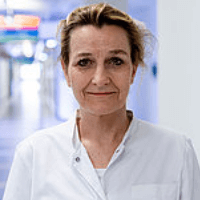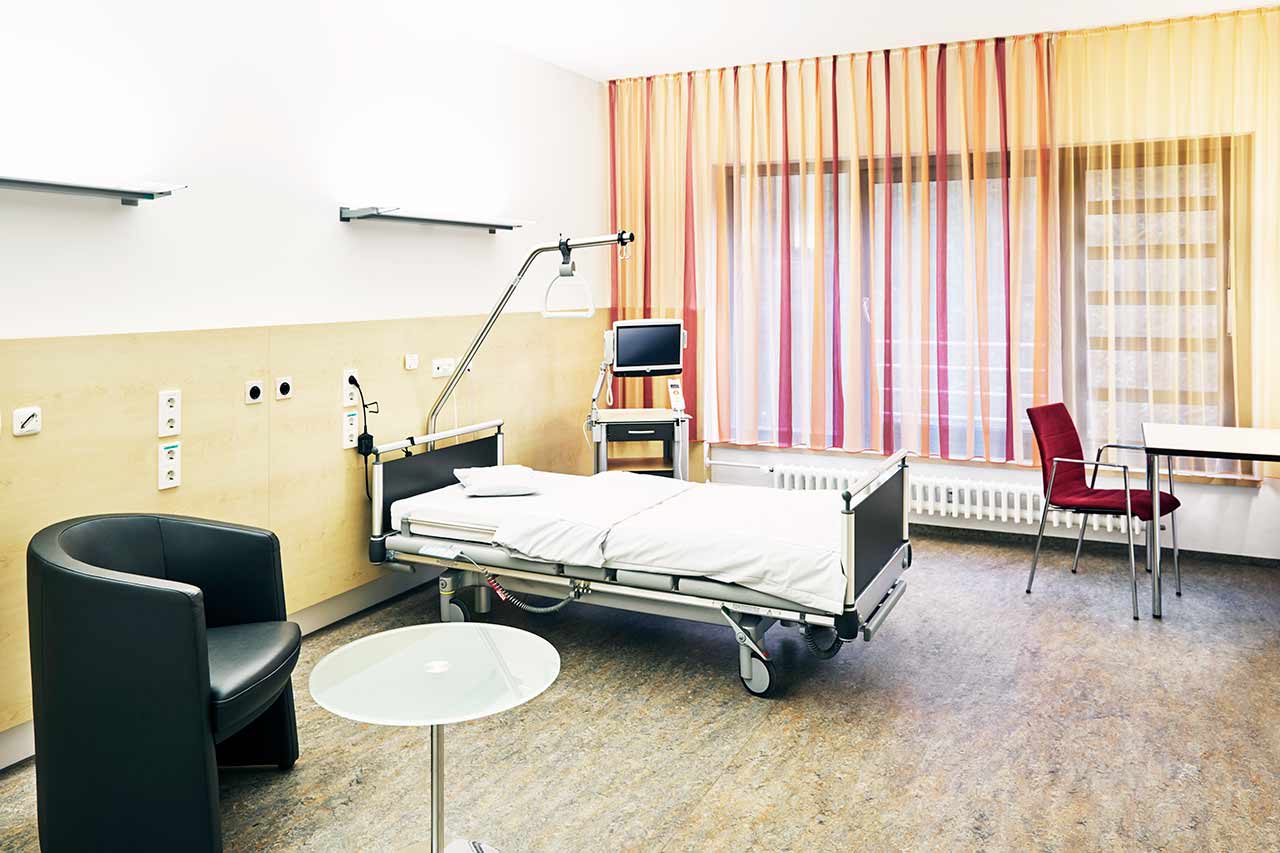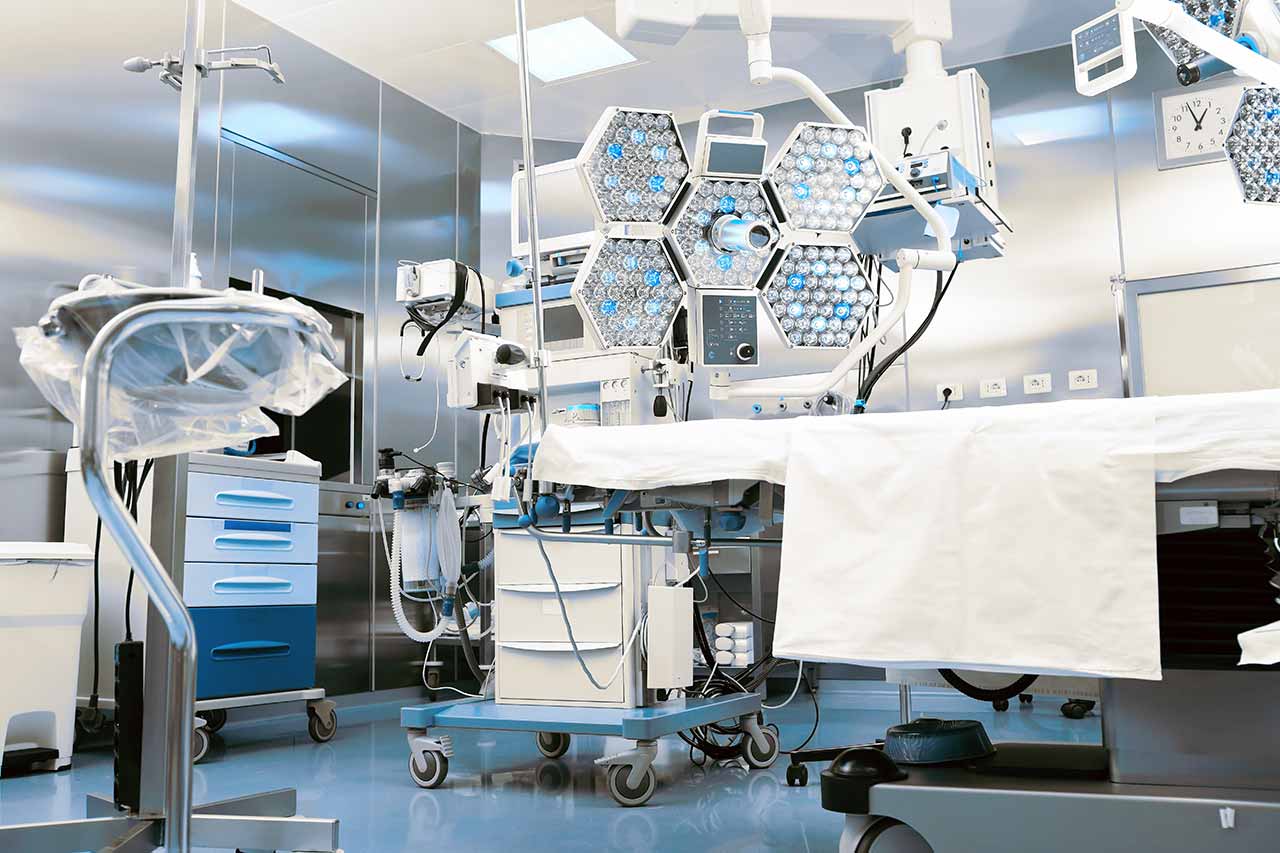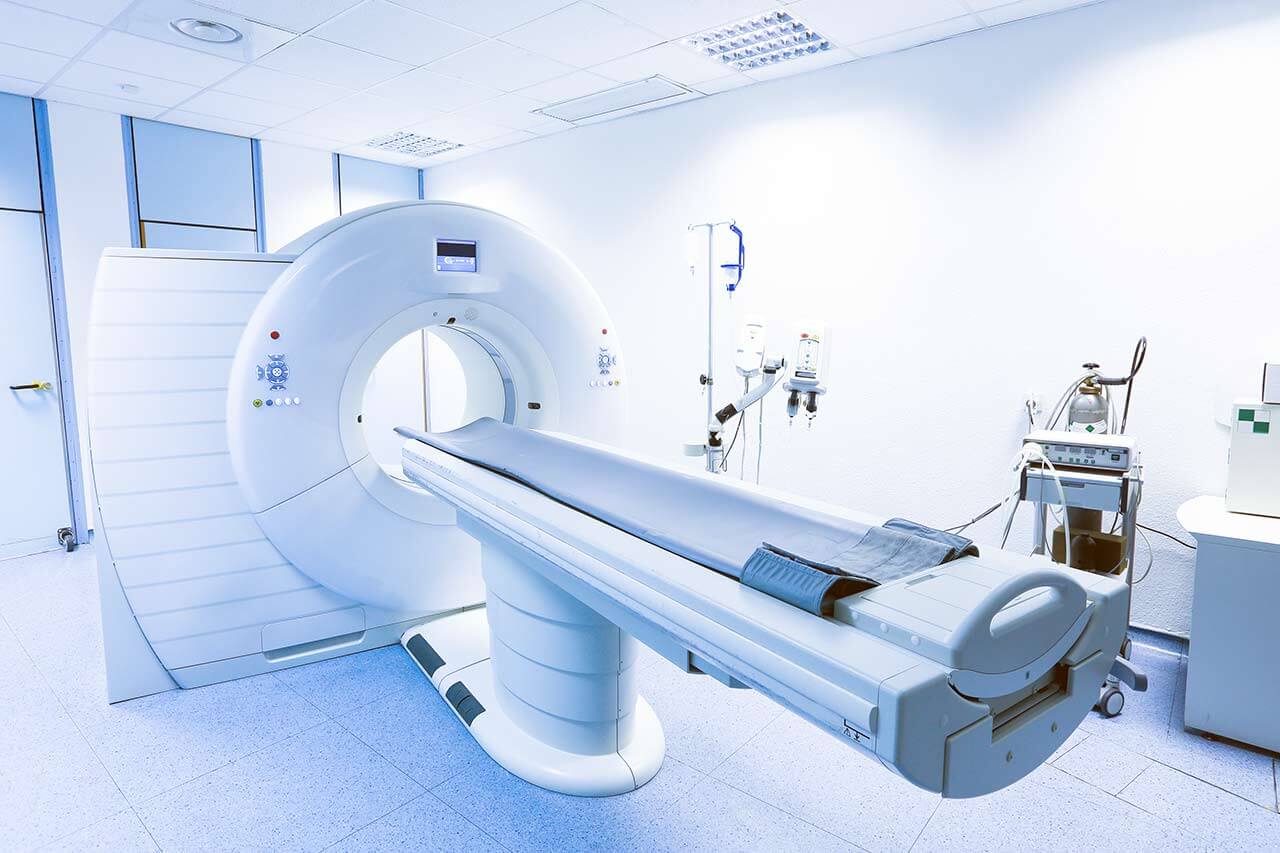
The program includes:
- Initial presentation in the clinic
- clinical history taking
- review of medical records
- physical examination
- laboratory tests:
- complete blood count
- general urine analysis
- biochemical analysis of blood
- TSH-basal, fT3, fT4
- tumor markers
- inflammation indicators
- indicators of blood coagulation
- orbital ultrasound scan
- CT / MRI / X-ray scan of the head and orbit
- 1 course of chemotherapy
- nursing services
- consultations of related specialists
- explanation of individual treatment plan
How program is carried out
During the first visit, the doctor will conduct a clinical examination and go through the results of previous laboratory tests and instrumental examinations. After that, you will undergo an additional examination, including laboratory assessment of liver and kidney function, ultrasound scan. Based on the received results, the doctor will elaborate the chemotherapy regimen. If necessary, related medical specialists will be involved in the elaboration of a treatment regimen (tumor board).
Chemotherapy is carried out as the day hospital procedure, without mandatory admission to the hospital. After the placement of a venous catheter, you will stay in a comfortable ward. An infusion system will be connected to the catheter, through which the required drug or a drug combination will be administered. All drugs are administered by intravenous drip, slowly, so the total duration of the infusion can be up to several hours. All this time, doctors and nurses will monitor your health condition closely.
After the course of chemotherapy, you will stay under medical supervision in the ward for a few more hours. If your general condition is good, your doctor will allow you to leave the hospital. You will receive the medical report with detailed recommendations regarding further treatment. In the future, you will be able to have a distant consultation with your attending physician and schedule the next course of chemotherapy, if necessary.
Required documents
- Medical records
- MRI/CT scan (not older than 3 months)
- Biopsy results (if available)
Service
You may also book:
 BookingHealth Price from:
BookingHealth Price from:
About the department
The Department of Pediatric Oncology, Hematology, Allergology, Pulmonology, Endocrinology, Diabetology, Treatment of Coagulation Disorders and Immunodeficiency Disorders at the Hospital Kassel offers the full range of high-precision diagnostics and effective treatment of diseases in these medical fields. The focus of doctors is on young patients with benign and malignant diseases of the hematopoietic system, malignant solid tumors of various localizations, immunodeficiency disorders and diabetes mellitus. The department is certified by the German Cancer Society as the Pediatric Cancer Center and is also recognized as the Training Center by the German Diabetes Society. The high treatment success rates in children with life-threatening pathologies are awarded by the most prestigious certificate for children's hospitals in Germany – "Ausgezeichnet. Für Kinder!" The best doctors in Germany take care of the health of young patients. They have at their disposal the most advanced medical technologies and treatment methods. The department also employs highly qualified psychologists who support both children, their parents and relatives, since, in some cases, a detected diagnosis can cause a severe emotional shock. The department is headed by Prof. Dr. med. Michaela Nathrath.
The main task of the department's specialists is the accurate and timely diagnostics of diseases, the elaboration of an individual treatment regimen using the most modern treatment methods for severe, and sometimes even life-threatening diseases. At the diagnostic stage, the department's specialists carry out various imaging and laboratory tests, which allow them to determine an accurate diagnosis, obtain comprehensive information about the stage of the disease and the causes of its development, which in turn makes it possible to optimally combine various therapeutic techniques for the achievement of a complete cure of the patient or long-term remission of the pathology. In the case of oncological diseases, the treatment tactics are developed during the interdisciplinary tumor boards with the participation of doctors from all the necessary medical fields. The specialists always take into account the peculiarities of the growing child's body, as well as the general state of health of the young patient, in order not only to cure the disease, but also to guarantee him the absence of developmental disorders in the future.
The department's medical team most often admits young patients with benign and malignant blood diseases, as well as with solid tumors. The main treatment method for blood malignancies in the department is chemotherapy, which in most cases is carried out on an inpatient basis. Such an approach allows the doctors to monitor the child's state. Chemotherapy drugs are most often administered as infusions, but pills are also possible. In addition to chemotherapy, the patients with solid malignant tumors require a surgical resection of the tumor, which is performed in the Department of Pediatric Surgery. The most common solid tumors in children are brain neoplasms, so pediatric neurologists are also involved in the therapeutic process. An integral part of the therapeutic process is the professional care of psychologists for both children and their parents, since oncological diseases are among the most complex pathologies and when parents hear the diagnosis, they mostly experience a huge emotional shock, while the child will have to undergo a long and complex treatment. In addition, art therapists and music therapists work with children. The department regularly hosts regular entertainment performances with clowns.
An important focus of the department's clinical practice is the provision of medical care to children with circulatory disorders and immunodeficiency disorders. The department is a certified Center for Severe Combined Immunodeficiency. To detect this pathology, the doctors carry out special screenings, including in newborns. If the diagnosis is confirmed, the specialists provide maintenance treatment with immunoglobulins, antibiotics and antifungal drugs. The last line treatment is stem cell transplantation.
The patients are offered medical care from a competent team of pediatric endocrinologists who specialize in the diagnostics and treatment of diabetes mellitus in young patients. The department treats more than 300 children with this diagnosis every year. The department has the status of a certified Training Center of the German Diabetes Association (DDG). As of today, diabetes mellitus is an incurable chronic disease, so the therapy consists in controlling blood sugar levels and following a proper diet, which will prevent the progression of the disease. The department's specialists individually develop the proper diet for the child, and also teach the patient and his parents a new way of life with this pathology. In addition to diet therapy, the most important component of treatment is insulin therapy using a special pump.
The department's team of pediatric pulmonologists provides both diagnostics and treatment for children with lund and respiratory diseases. Of particular interest to the department's medical team is the treatment of cystic fibrosis, which affects not only lungs, but also the intestine, liver and other vital organs. The diagnostic examination involves various imaging tests (X-ray, ultrasound, CT and MRI scans), as well as pulmonary function testing. Depending on the severity of the pathology, the treatment can be either inpatient or outpatient. The treatment is based on drug therapy, inhalation and breathing exercises. Whenever required, pediatric gastroenterologists, diabetologists, radiologists and surgeons are involved in the therapeutic process.
The department's service range is complemented by the treatment of allergic reactions in children. The most common allergic diseases in the department's clinical practice are bronchial asthma, atopic dermatitis, chronic rhinitis, as well as drug allergies, insect venom allergies and food intolerance. It is very important to find the cause of the allergy in time and eliminate all the possible factors, which can affect the exacerbation of symptoms. For this purpose,the doctors use the individually adapted differentiated diagnostics, with the help of which they can accurately determine the type of allergic reaction and initiate timely treatment. In the case of food allergies, which are considered life-threatening, diet therapy is prescribed and an individual menu is developed. With appropriate clinical indications, the doctors can use allergen immunotherapy to suppress symptoms as quickly as possible.
The department's key clinical focuses include:
- Diagnostics and treatment of diseases of the hematopoietic system in children
- Benign blood diseases
- Anemia
- Congenital and acquired diseases of platelets and leukocytes
- Impaired haemopoiesis (for example, thalassemia, sickle cell disease)
- Malignant blood diseases
- Acute lymphoblastic leukemia
- Chronic lymphocytic leukemia
- Acute myeloid leukemia
- Hodgkin's lymphoma
- Non-Hodgkin's lymphoma
- Benign blood diseases
- Diagnostics and treatment of solid tumors of various localization in cooperation with specialists from the Departments of Pediatric Neurology and Pediatric Surgery
- Brain tumors
- Wilms' tumor
- Neuroblastoma
- Teratoma
- Rhabdomyosarcoma
- Lung tumors
- Testicular tumors
- Diagnostics and treatment of circulatory disorders and immunodeficiency disorders, including severe combined immunodeficiency
- Diagnostics and treatment of diabetes mellitus in children
- Insulin therapy
- Diet therapy
- Practical training on self-monitoring of blood glucose levels
- Diagnostics and treatment of lung and respiratory diseases (special focus on cystic fibrosis treatment)
- Diagnostics and treatment of allergic diseases in children
- Bronchial asthma
- Atopic dermatitis
- Allergic rhinitis
- Drug allergy
- Insect venom allergy
- Food intolerance
- Other medical services
Curriculum vitae
Higher Education and Postgraduate Training
- 1991 Doctoral thesis defense, Faculty of Medicine, Technical University of Munich.
- 1998 Board certification in Pediatric and Adolescent Medicine.
- 2005 Specialization in Pediatric Hematology and Oncology.
- 2006 Habilitation, Subject: "Molecular and genetic aspects of the pathogenesis and therapy of osteosarcoma", Technical University of Munich.
- 2009 Additional qualification in Palliative Care.
- 2012 Extraordinary Professor in the Department of Pediatric and Adolescent Medicine at the Technical University of Munich.
Professional Career
- 1988 - 1989 Assistant Physician, Institute of Pathology, Ludwig Maximilian University of Munich.
- 1989 - 1990 Fellow, Department of Hematology and Oncology, hospital at the University College London.
- 1991 - 1998 Specialized training for board certification in the Department of Pediatric and Adolescent Medicine at the Schwabing Hospital.
- 1998 - 2001 Postdoctoral studies at the Institute of Pathology/Helmholtz Zentrum Munich at the Technical University of Munich; Research subject: "Comparative study of osteosarcoma on an animal model of mice."
- 2001 - 2008 Senior Physician, then Senior Physician with management responsibilities in the Department of Pediatric and Adolescent Medicine, Pediatric Oncology, Hematology and Stem Cell Transplantation, Schwabing Hospital in Munich.
- 2005 - 2016 Head of the Working Group on Osteosarcoma, Department of Pediatric and Adolescent Medicine, Helmholtz Zentrum Munich at the Technical University of Munich.
- Since 2008 Head of the Department of Pediatric Oncology, Hematology, Allergology, Pulmonology, Endocrinology, Diabetology, Treatment of Coagulation Disorders and Immunodeficiency Disorders at the Hospital Kassel.
Research Interests
- Diagnostics and treatment of sarcomas and osteosarcomas in children.
Awards and Honors
- 2006 Award of the Faculty of Medicine of the Technical University of Munich for the best habilitation.
- 2008 Order of Merit of the Federal Republic of Germany "For special achievements in pediatric oncology".
- 2015 Noellenburg Prize for contributions to the study of bone tumors at the conference of the International Society of Pediatric Oncology (SIOP) in Cape Town.
Memberships in Professional Societies
- Member of the Research Groups on Osteosarcoma, Ewing's Sarcoma, Soft Tissue Sarcoma.
- German Society of Pediatric Oncology and Hematology (GPOH).
- German Society of Pediatrics and Adolescent Medicine (DGKJ).
- German Society for Palliative Medicine.
- German Working Group on Bone Tumors.
- German Working Group on Bone Marrow and Stem Cell Transplantation.
- Working Group on Stem Cell Transplantation in Children.
Honorary Positions
- Chairman of the Association "Little Giants of Northern Hesse".
- Head of the Clinical Ethics Committee, Hospital Kassel.
- Scientific Advisory Board of the Munich Outpatient Hospice for Children (AKM).
Photo of the doctor: (c) Klinikum Kassel
About hospital
The Hospital Kassel is a progressive medical facility with a huge medical team, which provides high-quality medical services in all branches of modern medicine. The hospital is part of the regional medical Gesundheit Nordhessen Holding, which unites 5 top-class medical centers, including specialized rehabilitation clinics. With 1,281 beds, the hospital is known as the largest medical complex in the federal state of Hesse. The hospital has 32 specialized departments with highly qualified doctors and specially trained nursing staff in each department. The team of 3,200 employees takes care of the health of patients. The main value for each employee is the patient's health. The professional skills of the medical staff in combination with state-of-the-art medical and technical equipment of the hospital provide excellent opportunities for the treatment of patients with pathologies of any severity.
The hospital provides treatment to over 55,000 inpatients and about 140,000 outpatients every year. Medical care is provided to both German citizens and many patients from foreign countries. Such high rates are the evidence of excellent quality of medical services and the high credit of patients' trust.
The hospital has created a wonderful atmosphere, which contributes to the rapid recovery of patients. All diagnostic and therapeutic rooms, operating rooms, as well as patient rooms are designed taking into account modern standards of European medicine in order to ensure maximum comfort of each patient. All employees working in the hospital provide the patient with understanding and respect, as well as support him in every possible way during the entire therapeutic process.
The hospital successfully implements a quality management system. It uses its own quality management system implemented by the medical Gesundheit Nordhessen Holding, as well as the IQM (Initiative Qualitätsmedizin) monitoring system. As part of healthcare quality management, the hospital annually clearly provides reports on its clinical activities, the success of diagnostics, treatment, level of patient care, etc. Thus, the hospital stands for maximum openness in its work and makes every effort to maintain the highest level of quality of medical care.
Photo: (с) depositphotos
Accommodation in hospital
Patients rooms
The patients of the Hospital Kassel live in comfortable single, double and triple rooms. The patient rooms are made in a modern design and pastel colors. A standard patient room includes an automatically adjustable bed, a bedside table, a wardrobe, a table and chairs for receiving visitors, a TV and a telephone. The patient rooms have Wi-Fi. Each room has an ensuite bathroom with shower and toilet.
The hospital also offers enhanced-comfort patient rooms. Most of these rooms have a balcony. The bathroom additionally includes a hairdryer, towels and toiletries.
Meals and Menus
The patient and the accompanying person are offered tasty and balanced three meals a day. If for some reason you do not eat all foods, you will be offered an individual menu. Please inform the medical staff about your food preferences prior to treatment. The patients staying in enhanced-comfort rooms are provided with an individual menu every day.
The hospital also has several cafes where one can have a cup of tea or coffee, taste delicious pastries, salads, main hot dishes, pizza, etc.
Further details
Standard rooms include:
Religion
The religious services are available upon request.
Accompanying person
During the inpatient program, the accompanying person can live with the patient in a patient room or a hotel of his choice. Our managers will help you choose the most suitable option.
Hotel
During an outpatient program, the patient can stay at the hotel of his choice. Our managers will help you choose the most suitable option.





